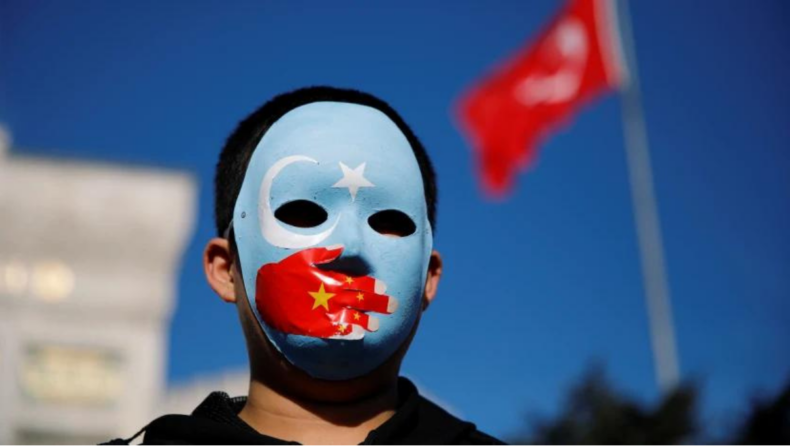US Department of State slams China for committing ‘genocide’ against Uighurs in an annual report on global religious freedom.
According to a US official, China is an example of how governments persecute religious minorities. The statement came as the State Department released its annual report on religious freedom.
Rashad Hussain, the United States’ general ambassador for international religious freedom, said at a news conference on Thursday that “too many governments remain undaunted about persecuting their citizens.”
“It’s not surprising that the People’s Republic of China is a prime example here,” he told reporters. “Government of the People’s Republic of China continues[s] commit genocide and crimes against humanity Uighurs predominantly Muslim, and members of other ethnic and religious groups,” he added.
The day before US President Joe Biden took office, Washington announced it had determined that Beijing was committing “genocide and crimes against humanity” against the Uighurs in the western province of Xinjiang, where human rights groups and witnesses say more than a million people are being tortured—detained in internment camps.
China initially denied the existence of any detention camps in Xinjiang. Still, in 2018 it said it had set up “vocation training centres” Necessary to curb what they say is terrorism, separatism and religious extremism in the region.
The Chinese government has denied the allegation of abuse and criticized “slanderous attacks” over the conditions of the Uighurs and other religious minorities in Xinjiang. “China continues to persecute primarily Muslim Uighurs and other religious minorities,” US Secretary of State Antony Blinken said at a news conference.
“Since April 2017, more than one million Uighurs, Kazakhs, Kyrgyz and others have been detained in an internment camp in Xinjiang, ” he said.
The State Department report also accuses the Chinese government of asserting its right to control and restrict “the activities and personal freedoms of religious people that it considers threatening the state.” [Chinese Community Party] interests “.
“Non-governmental organizations and the media continue to report on deaths in custody and government torture, physical abuse, arrest, disappearance, detention, prison sentences, forced labour and forced labour to spread CCP ideology, and harass adherents of both registered and unregistered religious groups for activities related to their religious beliefs and practices,” it reads.
India
The State Department report also details religious freedom in India, a long-time US ally and the world’s largest democracy – but a country that experts and rights watchdogs say saw—worsening human rights conditions in recent years.
“Assaults on members of religious minority communities, including murder, assault and intimidation, occurred throughout the year,” the report found, pointing to incidents of “domestic violence.” cow vigilance” against non-Hindus, as well as threats, attacks and incitements against Christians. And followers of Islam.
The report said Hindu and Sikh civilians were also killed in Indian-administered Kashmir in attacks that “caused widespread fear” and forced hundreds of people to flee. “Ten out of 28 states have laws restricting religious conversion. In addition, the report found that four state governments have laws that impose penalties on so-called forced religious conversion for marriage,” the report found.
The findings come weeks after a separate US panel urged The State Department for the third year to rank India on the US list of “countries of particular concern”, saying that religious freedom has “remarkably worsened” in the country by 2021.
According to the United States Commission on International Religious Freedom (USCIRF), India commits “systematic, persistent, and serious violations of religious freedom”. It pursues policies that “affect Muslims, Christians, Sikhs, Dalits, and other religious minorities negatively”.

Since coming to power, the Biden administration has emphasized the importance of Washington’s relationship with New Delhi, and senior US officials have held a virtual talk with their Indian counterparts in April.
The relationship has recently been tested by India’s purchase of Russian energy supplies amid the war in Ukraine. US Vice President Biden told Indian Prime Minister Narendra Modi that the US could help diversify India’s oil supply but not by increasing Russian imports.













